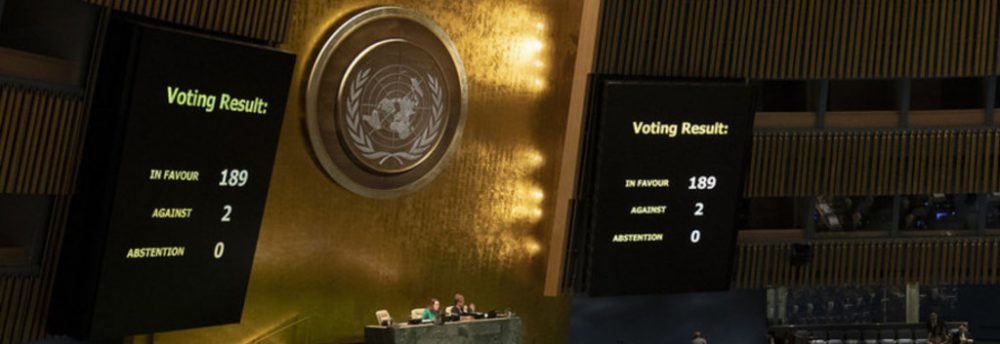November 16 2018
Source: Granma
The words of Cuba’s revolutionary “Chancellor of Dignity” are more relevant than ever in today’s Latin America

If all democratic forms of government have been subjected to the most challenging tests during these times, this has been seen nowhere more ferociously than in Our America, where they have been placed in serious danger. From south to north, military lodges, landholders, power brokers, uncouth oligarchies, and big business, in sinister complicity, with no holds placed by the UN or the OAS, have abolished fundamental human and civil freedoms. The cynical manipulation of popular will, and the violent removal of constitutionally elected governments by despots of a typical totalitarian cut, characterize this dramatic process that threatens the entire continent.
Fifth column pseudo-Marxists and imperialist greed reign today over an array of prostrate nations, at the mercy of big shots, local bosses, carpetbaggers, bankers, and unscrupulous businessmen. A few governments with popular roots, the majority plagued by administrative corruption, social dislocation, electoral demagoguery, and colonial exploitation, complete the somber picture. There is no doubt that the fate of democracy is at stake. The urgent imperative of a broad front of resistance to the uncontrolled aggression of the enemies of popular freedoms is glaringly clear.
Unquestionably, the democratic conception of life, society, and the state is essential to the spirit and historical development of our peoples. But it is no less the case that this concept is now threatened by the most reactionary, rapacious forces of our era.
The central question to be debated is how to push democratic regimes to the point of promoting within the people the impassioned determination to defend them, at the cost of their lives, in all contingencies and vicissitudes. A democratic regime without economic content, without a broad social base, and without the active participation of the people in directing public power, is a useless impediment in this historic period of transition. On this there can be no beating around the bush or euphuisms.
The fundamental problem facing democracy, at this time, is how to organize society without undermining freedom in any way. On the global level, it is imperative that democracy clearly recognize the subjective rights of traditional rights. The questions that torment human beings can only be resolved with the “discovery and establishment of a more just legal structure that allows the problem to be reduced to its true terms.”
Traditional rights can only exist now in function of society. No individual interest that is counterpoised to social interests is legitimate. If we aspire for humans to recover their “lost fertility” and develop fully their aptitudes and powers, things must be socially contextualized. The task which the democratic movement faces is extremely complex.
In the specific case of Our America, we must deal with what history has given us. On the material and cultural level, much progress has been made thus far this century. Viewing the process as a whole, it must be recognized, however, that the economic, social, and administrative structure of Latin American peoples is in need of substantial change. This transformation must be combined with respect for public freedoms and with an international policy that forcefully repudiates regimes that disregard human dignity.
We must insist that only through clean elections, honest administration, public freedoms, economic wellbeing, social justice, diffusion of the merits and consolidation of sovereignty, can representative institutions in the hemisphere be saved. This is a unique opportunity to give the struggle against dictatorships in the Americas content and historical perspective.
American states have assumed the commitment to guarantee our peoples freedom and justice by signing the UN Human Rights Charter and the Rights and Duties charter at the Ninth International Conference of American States in Bogotá.
Peace is the supreme aspiration of men who consider liberty an imperative of conscience. The role played by leaders of the work force is of the first order. No one like them can contribute the most pressing and effective formulas for social improvement to strengthen the democratic regime.
Nor can the problem of industrialization of Our America be neglected. Increasing the economic strength of our peoples is one of the most effective means to build up and consolidate democratic regimes, and rein in imperialists of all bands and types.
The way in which more developed countries can contribute to expanding our economic potential must be considered with this question in mind: Can representative governments that are respectful of public freedoms, and those founded on the usurpation of popular will which deny their citizens access to essential human and civil rights, be placed on equal footing in terms of this help? Can the controversial question of recognizing de facto governments be overlooked?
On this issue, there are no guidelines within intra-American law, or unanimity of opinion among foreign ministries.
If democracy needs both Americas to overcome the deep crisis we face, it is imperative that the good neighbor policy be effectively restored. After the death of Franklyn Delano Roosevelt, on many occasions, “We have been the good and others the neighbors.” May the government of the people, by the people, and for the people stop being the government in name only of the people, without the people, and against the people! May the America of Juárez and the America of Lincoln live on equal footing, in peace and harmony!
(Excerpts from 15 años después, Editorial Librería Selecta, Havana, 1950).
* Raúl Roa García (1907-1982) was a writer, professor, historian, political leader, and diplomat, who served the Cuban Revolution as Foreign Minister from 1959 through 1976.

 President Nicolas Maduro and his economic team during the speech addressing
President Nicolas Maduro and his economic team during the speech addressing



